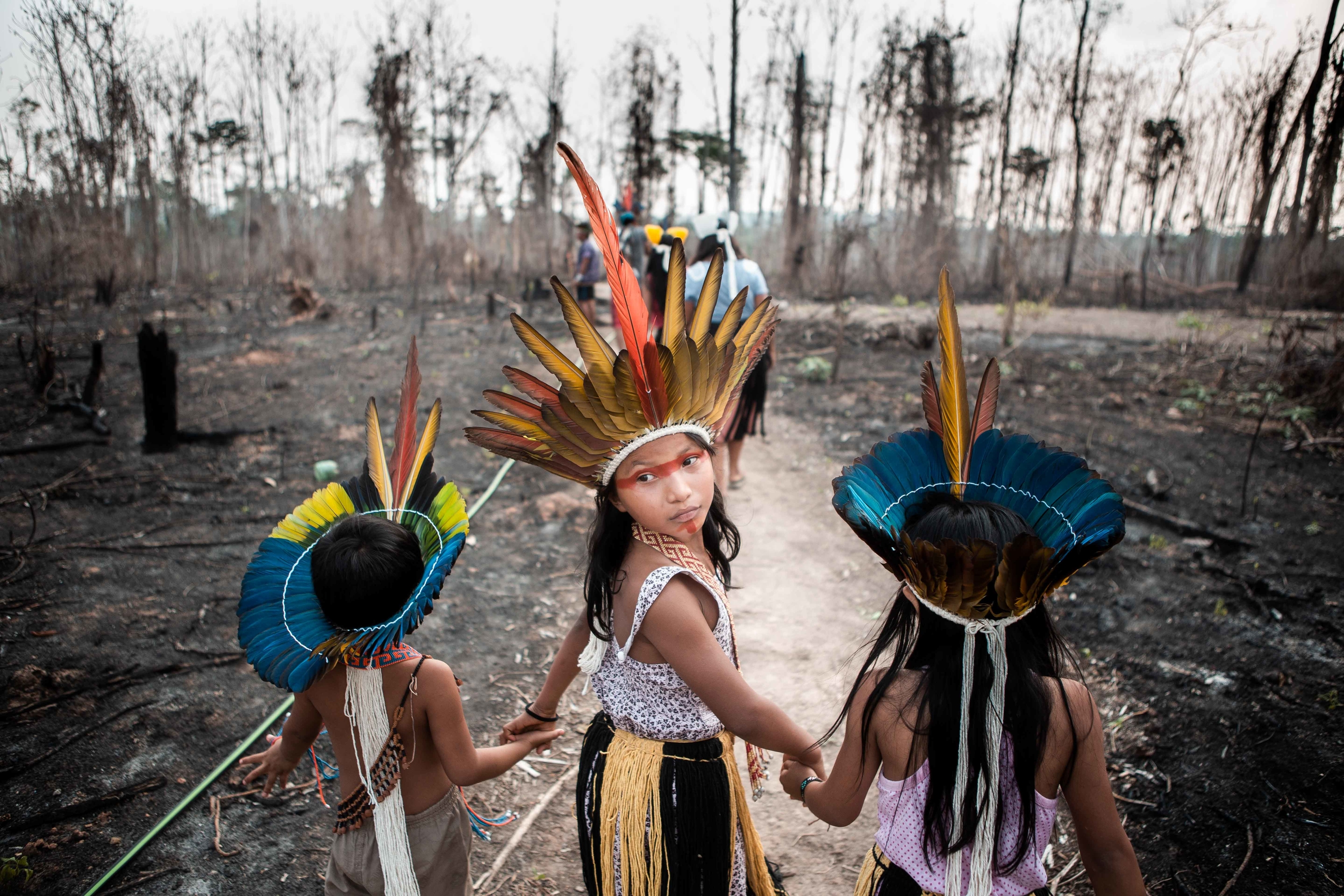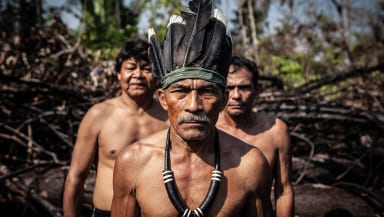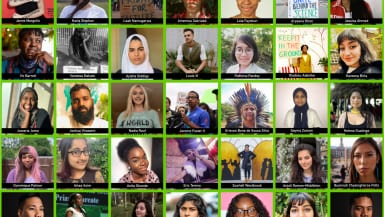The Brazilian Amazon is on fire. Slash-and-burn practices by farmers, backed by Brazil’s powerful agribusiness sector, have seen great swathes of the world’s most crucial ecosystem burnt to a crisp.
The fires in the Amazon are no natural disaster: they are the result of an active choice to sacrifice the environment and Indigenous rights for industry profit. And our companies, governments and global supply chains play a key role in driving the destruction.
You’d think rainforests would be too wet to burn. But farmers start fires deliberately as a way to clear the forest and take more land for themselves. And small patches of deforestation have created dried-out fringe areas, which also catch fire easily.
Why are Amazon fires increasing?
Brazil’s far-right President Jair Bolsonaro has encouraged land clearing for farming, creating a more fragmented rainforest. He took power promising to back business and cut “red tape” – which has meant weakened protections of Brazil’s forests. He fired the head of Brazil’s space agency INPE, tasked with tracking Amazon deforestation, accusing him of “lies” over the clearances.

Members of Huni Kuin tribe inspect the destruction of forests neighbouring their home in the state of Acre, Brazil. They are determined to reforest and establish a spiritual and cultural centre which would preserve their culture and knowledge about the natural medicine and serve as the shelter for Indigenous people in need. © David Tesinsky / Greenpeace
Bolsonaro has also effectively “declared war” on Brazil’s Indigenous Peoples standing in the way of Amazon land grabs. He once said: “It’s a shame that the Brazilian cavalry wasn’t as efficient as the Americans, who exterminated the Indians.”
Bolsonaro’s speeches encourage those who destroy the Amazon. In mid-August 2019, farmers around a main road in the Amazon held a “Day of Fire”, resulting in a 300% increase in fires in the area.
New figures show the amount of Amazon Rainforest cleared in Brazil have reached a record high. As of the end of August 2019, Brazil has seen over 90,000 fires: over 46,000 in the Amazon; more than 27,000 fires in another biodiversity hotspot, the Cerrado. This is an increase of 145% from 1 January to 20 August 2019, compared to the same period last year.
Who are the fires affecting?
As well as the worldwide impacts of climate change, the fires are directly affecting Indigenous and other rural communities. Firmly on the frontlines, Brazil’s Indigenous Peoples are defending the Amazon from destruction, even as Bolsonaro’s dehumanising rhetoric encourages arson and other violence against them.
The effects are being felt across Brazil too. On the afternoon of 19 August 2019, so much smoke was produced that in São Paulo – a city more than 2,700km away from the blazes – the skies turned black.
If this feels apocalyptic, it’s because it is. This is what a climate emergency looks like. The Amazon is a critical carbon sink, vital for mitigating climate change. The fires themselves emit further carbon – the exact opposite of what the planet needs right now.
Super intense scenes out of São Paulo last night from the Amazon – yes Amazon – Wildfires. From SP to the Amazon is like the length of Europe 😟 https://t.co/tMcnPwG5yi
— Helle Abelvik-Lawson 💪😷 (@Abelvixx) August 20, 2019
What do Amazon fires have to do with the UK?
Quite a lot. The forests are being cleared for food production – making global companies, governments, and supply chains complicit in turning the Amazon to ash.
Brazil is a key exporter of animal feed, beef and leather. Brazilian soy feeds animals that end up on supermarket shelves and in fast food joints around the world. Global demand for these products is fuelling the fires raging in Brazil’s forests, destroying Indigenous land – with serious implications for all life on Earth.
Brands must distance themselves from the devastation. Major players like Timberland, Vans and North Face have stopped sourcing leather from Brazil, concerned that their products could be contributing to the damage. Others need to follow their lead.
The UK government must also put the Amazon and Indigenous rights first. That means stopping the trade talks currently underway with Brazil’s government, and ensuring any future deal has the Amazon and its people at its heart.
Finally, we as a society should consider our own consumption patterns. The planet can’t afford endless production of meat at the expense of the Amazon Rainforest. Stopping the real damage to the country, its people, and the world’s climate will require hitting Brazil’s agribusiness sector where it hurts.



